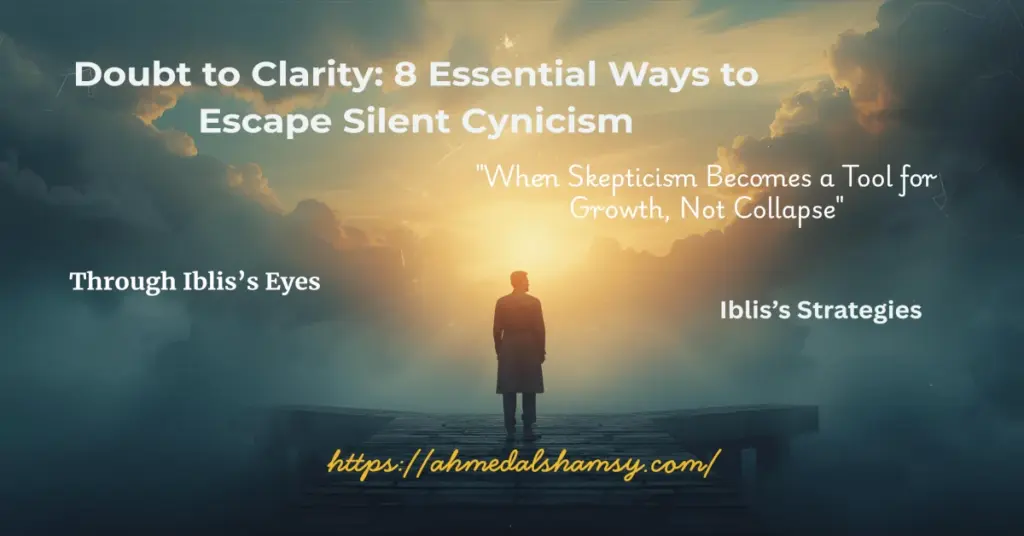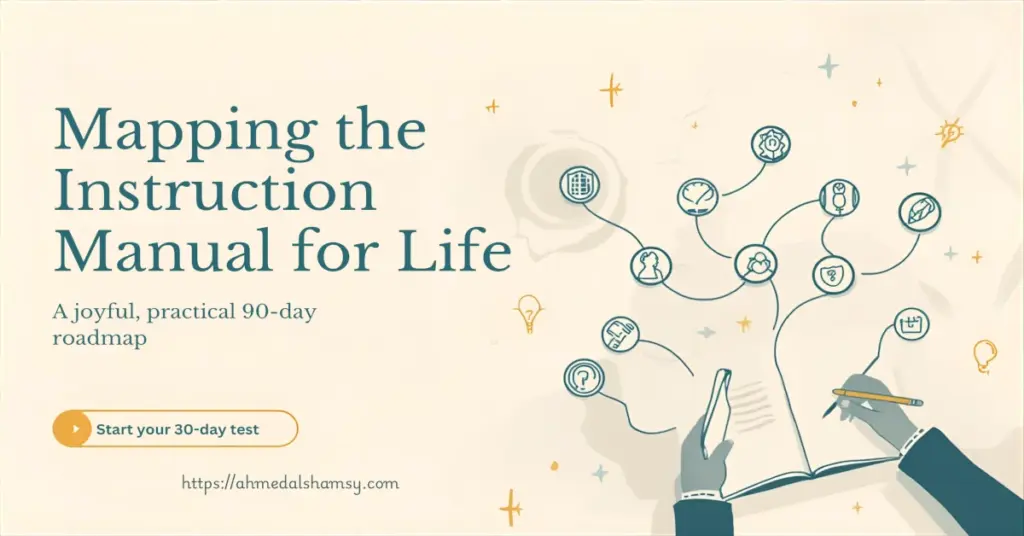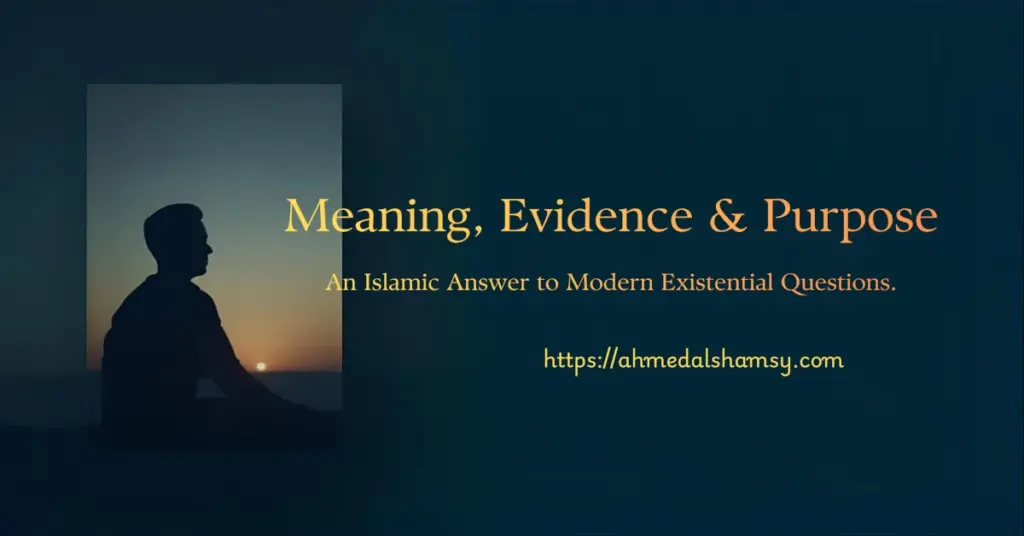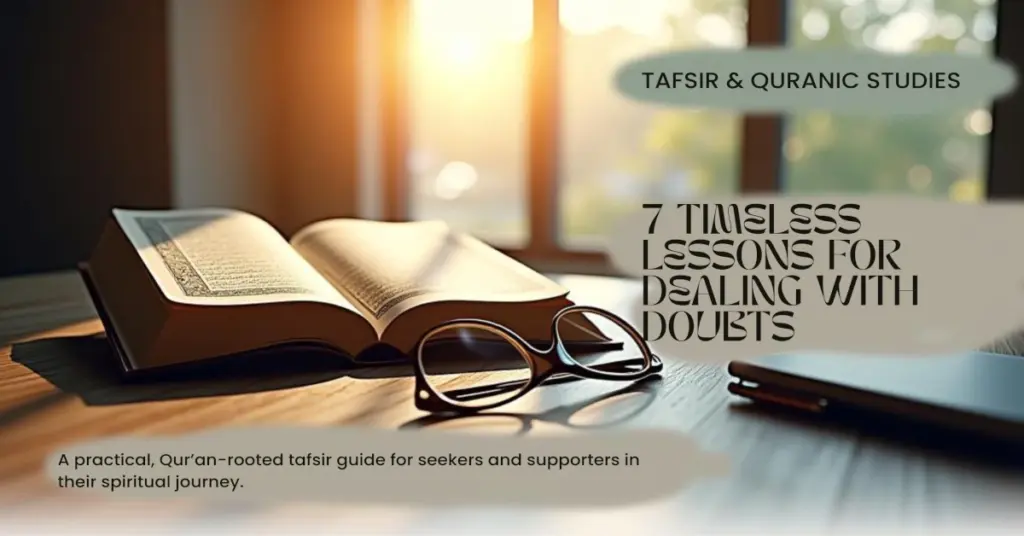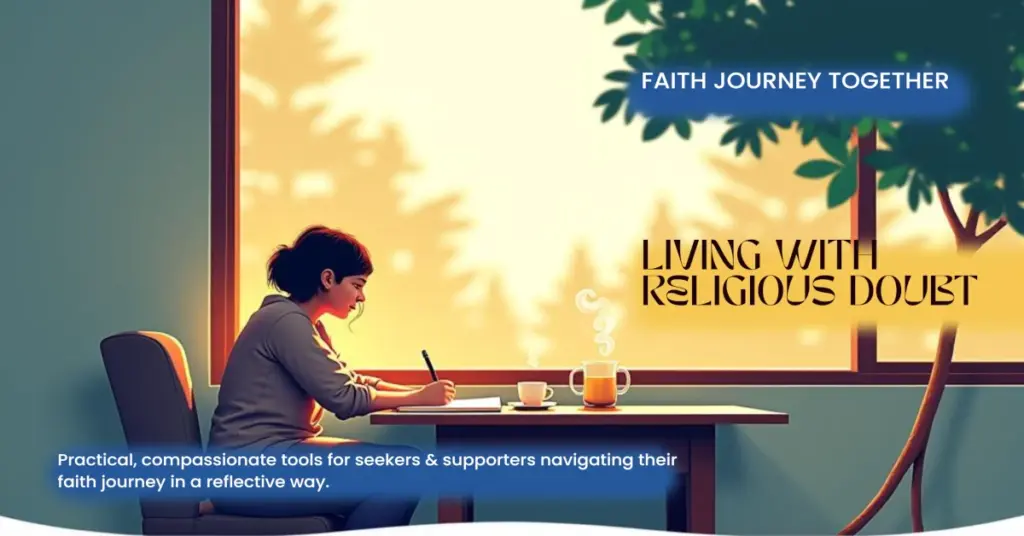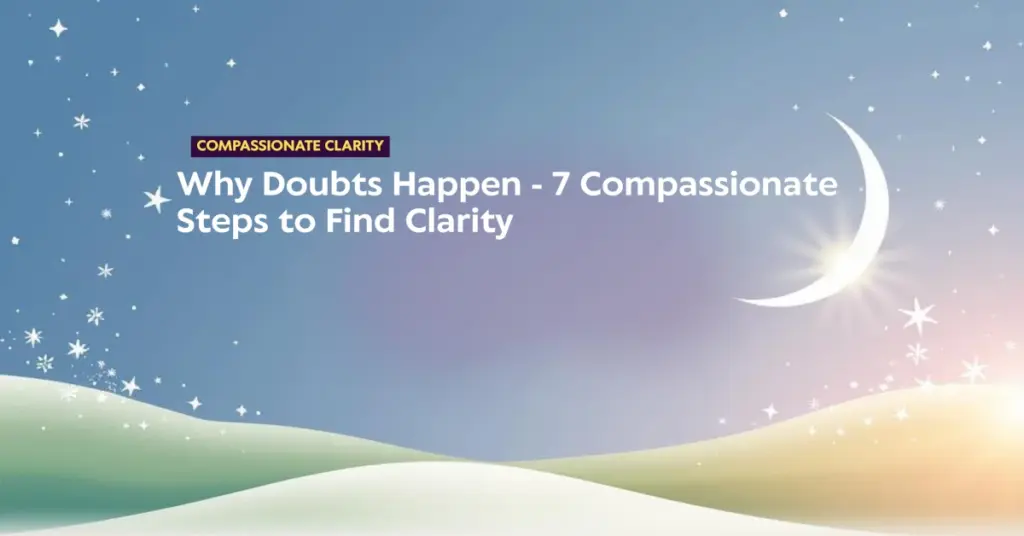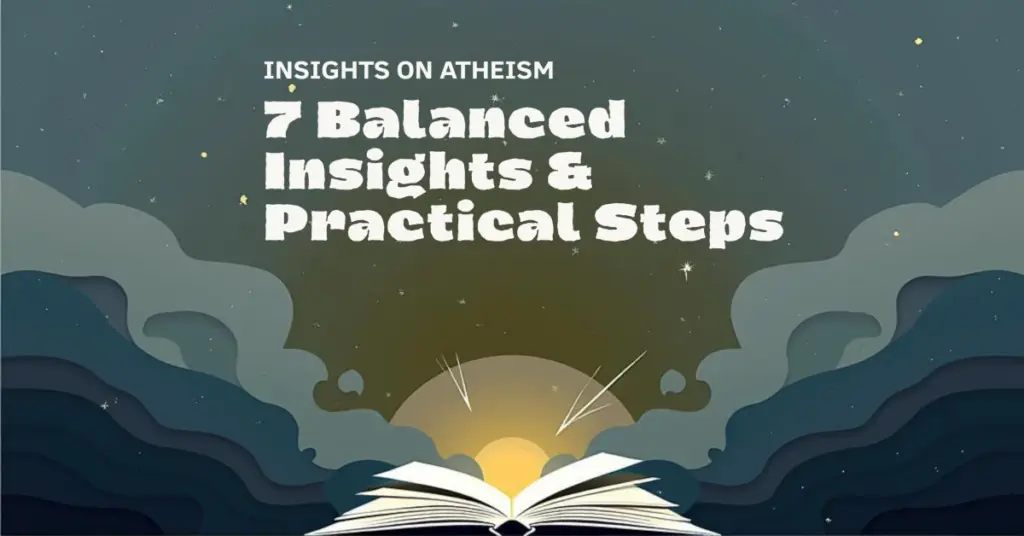Doubt to Clarity: 8 Essential Ways to Escape Silent Cynicism — Through Iblis’s Eyes
Atheism and DoubtsIs doubt a doorway to clarity—or a quiet trap leading to cynicism? This essay, part of the Through Iblīs’s Eyes series under Iblīs’s Strategies, examines how sincere questioning is subtly redirected into disengagement. It then offers compassionate, practical pathways to recover intellectual honesty, moral trust, and grounded clarity—without suppressing doubt or shaming inquiry.
Doubt to Clarity: 8 Essential Ways to Escape Silent Cynicism — Through Iblis’s Eyes Read More »

